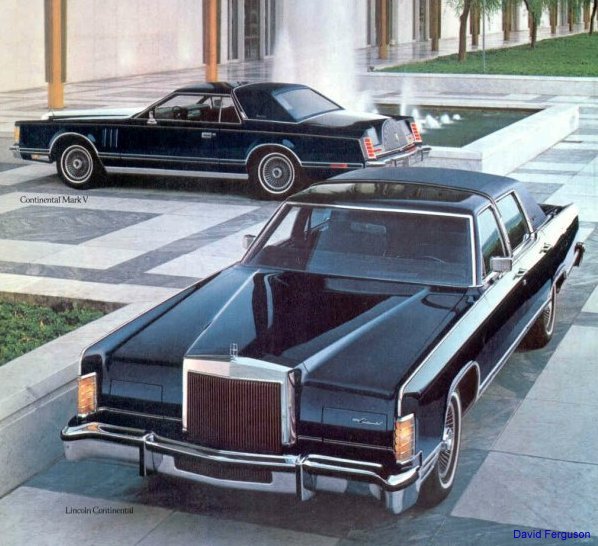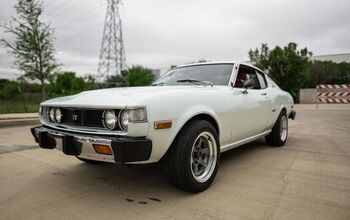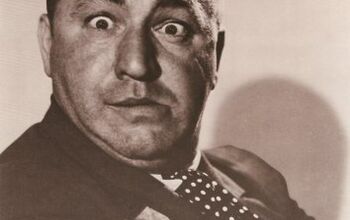Do We Really Need Big Cars?
If we look to the development of cars in general, and put that in a historical context, there are two things that follow each other like hand in glove. A cycle of oil crisis with drastically increased prices in gas, followed by a surge for smaller, more fuel efficient cars.
In the UK, the Suez crisis of 1956 lead to the development of the BMC Mini and Hillman Imp. The demand for smaller cars were stronger than the market could deliver. In the few years before the Mini, sales of the so called bubble-cars skyrocketed and the English automakers saw fit to close that gap to the inferior competitors. The US auto makers weren’t really into fuel efficient cars at the time, so Volkswagen made good fortunes of that wide open window of opportunity and became the best selling car in the world doing so. The 1973 oil crisis led to the American down-sizing, the Chevrolet Chevette, the Dodge Omni, and the Ford Fiesta. Though the Americans continued making the biggest gas guzzlers the world has ever seen, among them the humongous 7mpg Lincoln Mk V.
In Europe, people abandoned larger cars and made the Volkswagen Golf sized class of cars the best selling formula to date. In 1979, the American auto makers was yet unprepared for another fuel crisis, which almost sank the Chrysler Corporation altogether. Spiraling sales of Japanese imports in the 70’s made way for the ascent of the Toyota Corolla and Honda Accord, among others, creating a market that has only increased dramatically with time. And yet, the Americans continued making gas guzzling SUVs. The recent spike in oil prices led to an ever increasing demand in hybrids like the Toyota Prius, and skyrocketed the price for twenty year old beaters like the Geo Metro/Suzuki Swift into the absurd.
So, there’s a pattern. In times of fuel crisis and high gas prices, people demand smaller more fuel efficient cars. When the prices decrease, people feel less threatened and demand bigger cars. And the auto makers are only too happy to oblige, as they can make a bigger profit per units sold the bigger and more expensive the units get. The question is, if people can live with smaller cars in times of crisis, why can’t they live with them all the time? Why not always live as if the prices were going up? Why not make it more difficult to buy larger cars than the people really need? Should auto makers always only “make what people want” and to hell with that crock of shit? And how big do the cars have to be, to fill the need of the people?
Do we really need cars that makes less then 30 miles per gallon? Do people really need to commute in SUVS and trucks? Or even a Toyota Camry? Forget the notion of Toyota’s bulletproof quality and service, or BMW’s bench mark performance. I’m talking of real day to day practical needs. If bigger cars were abandoned altogether, I’m sure Toyota would fill every need anyway, and I’m equally sure that BMW would make the most performance oriented cars in that class in any case. What I’m after is, what do people really do with their cars, how do they use them, and what is an appropriate standard, in relation to excess. How much is enough? How big is big enough, but not too big?
Do commuters really need bigger cars than Smarts and Corollas? Do soccer-moms really need a Ford Expedition or even a Flex to haul the kids and ice-hockey gear? Do we really need mini-vans with V6-engines, or has that class grown too big with time? Business people need their trucks, but do people who don’t own a business really have the need for a truck on a day to day basis? Or could people share? Perhaps have a small commuter and save the trucks for weekend occasions, when the truck is really needed? The point of having a gas guzzler tax, is to make it more difficult for people to buy gas guzzlers. If the tax is not implemented on light trucks for private people, then it is irrelevant. There needs to be an incentive for people to switch from trucks to cars. That the Chrysler PT Cruiser is designated as a light truck is an insult to all intelligent people.
So, what’s the solution? I don’t know; you tell me? But a good start would be to make it more difficult to buy a larger car than you really have the need of. And make it easier to down-size and have a smaller car than you perhaps would be comfortable with. A gas guzzling tax in different steps, for cars and trucks less economical than say 30 mpg. The bigger the car, the more expensive it should be to own. The money could be used to subsidize the development of new technology. If GM wants a $7500 tax deduction for the Volt, there would be plenty of money at hand from such taxes. The point would be to make that credit available for all makers of hybrid technology. Tax the bigger cars and subsidize the smaller ones. And let nature have its course.
More by Ingvar Hallstrom
Latest Car Reviews
Read moreLatest Product Reviews
Read moreRecent Comments
- Corey Lewis It's not competitive against others in the class, as my review discussed. https://www.thetruthaboutcars.com/cars/chevrolet/rental-review-the-2023-chevrolet-malibu-last-domestic-midsize-standing-44502760
- Turbo Is Black Magic My wife had one of these back in 06, did a ton of work to it… supercharger, full exhaust, full suspension.. it was a blast to drive even though it was still hilariously slow. Great for drive in nights, open the hatch fold the seats flat and just relax.Also this thing is a great example of how far we have come in crash safety even since just 2005… go look at these old crash tests now and I cringe at what a modern electric tank would do to this thing.
- MaintenanceCosts Whenever the topic of the xB comes up…Me: "The style is fun. The combination of the box shape and the aggressive detailing is very JDM."Wife: "Those are ghetto."Me: "They're smaller than a Corolla outside and have the space of a RAV4 inside."Wife: "Those are ghetto."Me: "They're kind of fun to drive with a stick."Wife: "Those are ghetto."It's one of a few cars (including its fellow box, the Ford Flex) on which we will just never see eye to eye.
- Oberkanone The alternative is a more expensive SUV. Yes, it will be missed.
- Ajla I did like this one.


































Comments
Join the conversation
My x fatherinlaw drove lincolns, and had a mark V like the one shown, only it was dove grey. It would easily get 14 mpg on the highway. I had a 77 town car in the early 90's with the 460 engine, and it also averaged 14 on the highway. If a person installed a more efficient intake, like an edelbrock dual plane, with a nice aftermarket carb, like a holley or edelbrock 650, open element air cleaner and a more efficient exhaust system you could get another 3 or so more mpg out of one.
I can't believe this argument is still going on. I, for one, will always prefer to drive the largest vehicle I can afford to drive. If I were in the market right now, for a new vehicle, the 2011 Ford Explorer I test drove this week would fit my bill. That said, I also really like the current 2012 Ford Focus, and I always hated small cars. Wouldn't mind one for a commuter car, but no way could I do my outside sales rep job with one. Close, but still a bit too small.